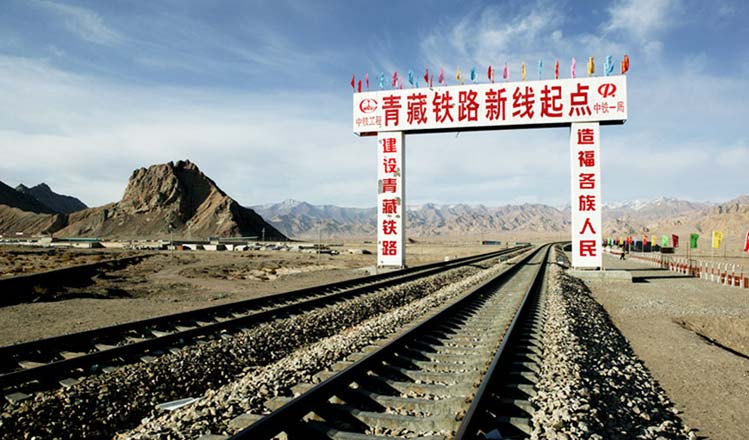Favorable policies set to boost private investments
Updated: 2016-07-02 09:46
(China Daily)
|
||||||||
Editor's Note: The June 22 executive meeting of the State Council, China's Cabinet reviewed the falling growth rate of non-governmental investment and the implementation of polices aimed at promoting private investments, and vowed to remove the obstacles preventing private investors from injecting more money into projects. Following are the comments of some domestic media outlets on the meeting:
Economic Daily:
Aside from the country's economic slowdown and sluggish progress of reform in some industries, the lackluster non-governmental investment can also be attributed to some local governments' failure to implement the preferential policies promised to investors. To attract investments from outside, many local governments promise preferential policies on land and taxation. But after outside investors start their projects, they are denied the preferential policies.
Such a breach of commitment has not only damaged local governments' credibility, but also dealt a severe blow to potential investors' confidence.
Statistics from the National Bureau of Statistics show the country's private fixed-asset investments grew by 3.9 percent in nominal terms in the first five months of this year, the lowest since 2005. And such investments accounted for 62 percent of China's total fixed-asset investment, a decline of 3.4 percentage points from the previous year.
Investment still plays a crucial role in China's economic development. Thus, how to increase private investment remains particularly important. And to further boost private investors' enthusiasm to invest, the government should try to raise its credit and strengthen institution building while creating a transparent and ideal environment for sustain-able investment.
China Economic Information Service:
The May economic data indicate that, although non-governmental investments accounted for 62 percent of China's total investment, they grew by only 0.96 percent year-on-year, a decline from the 10 percent growth rate in the previous two years.
Some say private investment growth has dropped because of government interventions in the market, lack of investors' confidence as well as their concerns over policy uncertainties. For example, a recent survey organized by the State Council showed some government policy measures aimed at promoting private investments have not been fully implemented, and private enterprises still find it difficult to access markets and funds.
Besides, local officials' inaction and malpractices, and their failure to keep promises have also seriously affected the sustainable development of private investments.
To promote private investment, the State Council meeting, among other things, has attached great importance to developing the private sector, adopting special policies to boost investors' confidence, effectively handling the relationship between the government and market, creating an equitable investment environment and strengthening the accountability mechanism for officials who fail to implement policies.
The policy signals given by the State Council, therefore, are expected to boost investor confidence and thus facilitate a steady increase in private investments.
Ifeng.com:
In a move to solve the problems faced by private investors, Premier Li Keqiang recently made an inspection tour of some State-owned banks, and said financial institutions need to support the real economy.
For an effective solution to the problems, however, the government should also try to build a multi-layer capital market and develop direct financing to offer enterprises, which help boost the real economy, a stable source of funds and to lower their financing costs.
Financial institutions are essentially a kind of capital and information intermediary. By developing financial big data, the country can help financial institutions gain full knowledge of the conditions of enterprises with financing demands and the flow of their funds, which will enable them to decide whether or not to offer them loans.
This will also help private enterprises, especially small and micro ones, remove the obstacles created by the asymmetry of information in getting loans, and thus help expand their financing channels.
Given the irregularities emerging internet financing platforms are involved in, the government should also take measures to tighten supervision over their businesses.
- Russian Eastern Spaceport shows mutual trust
- UK parties head for leadership battles amid Brexit fallout
- Special Syria envoy plans for July talks, August political transition
- Double suicide attacks kill at least 28 in Cameroon
- Turkey in mourning for 42 killed in deadly assault on Istanbul airport
- Brazil could dismiss Rousseff the day before Olympics ends

 Tenth birthday of the world's highest altitude train line
Tenth birthday of the world's highest altitude train line
 Crucial moments in the history of the CPC
Crucial moments in the history of the CPC
 Chibi Maruko-chan 25th anniversary exhibition
Chibi Maruko-chan 25th anniversary exhibition
 Turkey in mourning for 42 killed in assault on airport
Turkey in mourning for 42 killed in assault on airport
 China's future film stars take graduation photos
China's future film stars take graduation photos
 Russian Eastern Spaceport shows mutual trust
Russian Eastern Spaceport shows mutual trust
 Chinese Olympic team's uniforms unveiled in Beijing
Chinese Olympic team's uniforms unveiled in Beijing
 Paintings on paddy fields in Shenyang, NE China
Paintings on paddy fields in Shenyang, NE China
Most Viewed
Editor's Picks

|

|

|

|

|

|
Today's Top News
Abe's blame game reveals his policies failing to get results
Ending wildlife trafficking must be policy priority in Asia
Effects of supply-side reform take time to be seen
Chinese State Councilor Yang Jiechi to meet Kerry
Chinese stocks surge on back of MSCI rumors
Liang avoids jail in shooting death
China's finance minister addresses ratings downgrade
Duke alumni visit Chinese Embassy
US Weekly

|

|







